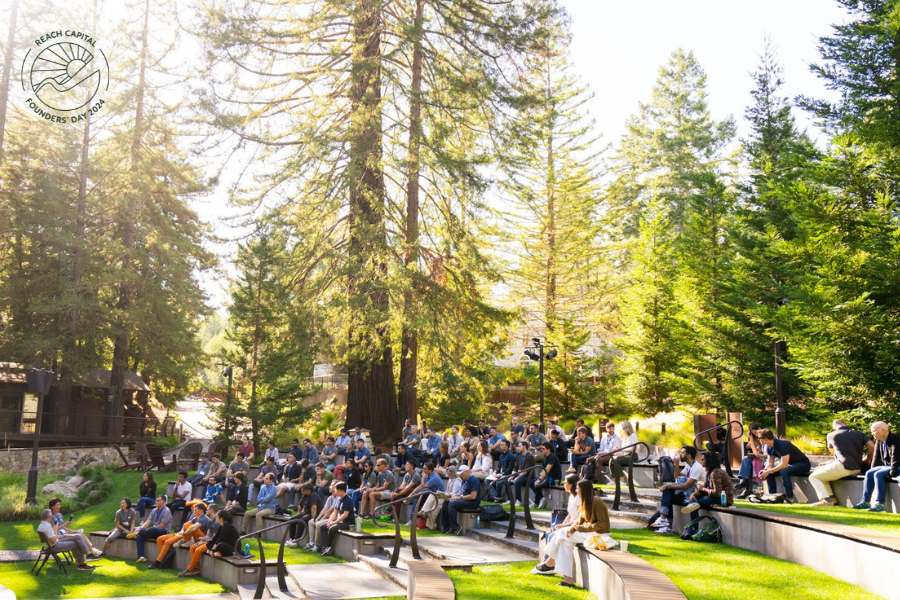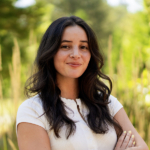Over ten years ago, a bold vision found its catalyst in community. Now, as Reach’s newest team member, I’m witnessing the preparation for something remarkable: the 10th anniversary of Reach Capital’s Founders’ Day. We’re hosting over 120 passionate minds reshaping the future of learning, health, and work. An opportunity to connect and draw inspiration from each other amidst the timeless majesty of the redwoods at 1440 Multiversity in Scotts Valley, Calif.
Events take months to prepare, but it all comes down to those last weeks when plans become reality, sometimes even to the last hour. The team works tirelessly to create a space where our community can relax, reflect, and rejuvenate, ensuring that each minute offers a moment for growth and learning among towering redwoods.
As a Reach newbie, I witnessed how that came to life, and I had the privilege of playing a small role in its success. The real magic, however, occurs when all the elements — the founders, the programming and the countless serendipitous conversations, seamlessly play into each other.
Watch what happens when 120 bright minds trade their usual Zoom squares for redwood circles.
It Takes a Village: A Decade of Relationships and Counting
On that Wednesday, September 25, armed with my checklist, overnight bag, and comfortable sneakers, I met our first group of attendees at the San Francisco ferry building. As we awaited our bus, I witnessed what would be a recurring theme: founders forming instant connections through their shared sense of purpose. From young visionaries reimagining language learning through open-world experiences to serial founders building a work-based learning marketplace, each person brought not just deep domain expertise but a genuine drive to transform lives.
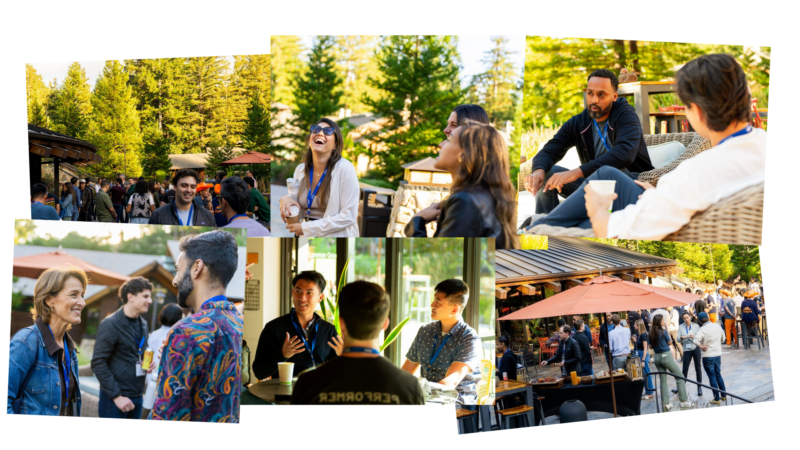
Photos taken by Jin Park.
What struck me most was the depth of these relationships. Some founders had known each other for over a decade, yet welcomed newcomers (like me) with open arms.
At the venue, our “Common Grounds” coffee station lived up to its name, becoming the central hub for conversations. Seasoned founders shared war stories with first-time entrepreneurs, casual chats about pedagogy turned into brainstorming sessions, and the line between formal networking and genuine friendship blurred. Every coffee break turned into a catalyst for collaboration, and every lunch table became a laboratory for new ideas. They moved seamlessly between big-picture thinking and laser-focused tactical execution, always questioning, always listening.
Stay Curious… and Close to Customers
Curiosity and customer obsession go hand-in-hand. At the earliest stages, before product-market fit, the most important thing for founders is to be close to customers, which entails talking to them almost everyday. But as your business scales, your team grows and you become more of an “executive,” there’s a natural tendency to be further removed. Jessica Rolph, Co-Founder and CEO of Lovevery, illustrated why keeping in touch with customers matters — even as the leader of a $200 million business.
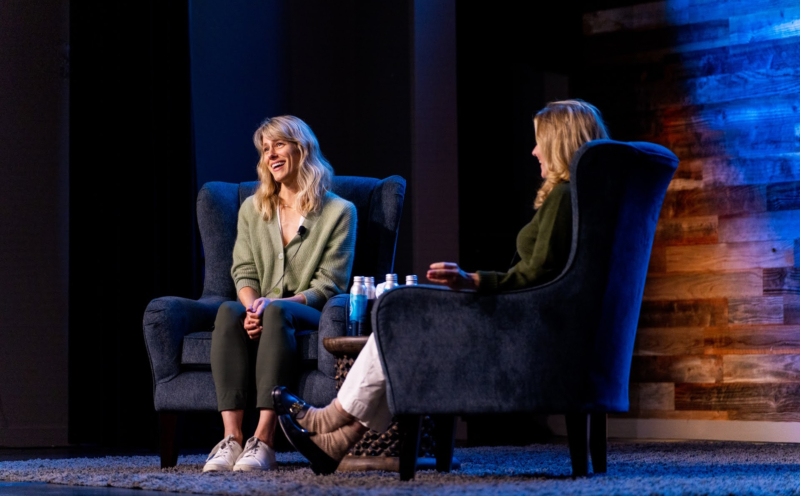
From left to right: Jessica Rolph, founder of Lovevery, and Jennifer Carolan, co-founder and managing partner at Reach Capital, for our fireside chat: “From Zero to $200M+, The Lovevery Story.”
During a fireside chat about her company journey, Jessica recalled recently traveling to different states to interview families in their homes about why they hesitated to buy Lovevery products. This commitment to hearing firsthand from users uncovered crucial feedback, such as the need to communicate how Lovevery kits are designed to grow with a child, and not just temporary toys. This learning not only informed product development but also refined its marketing to highlight the enduring value of their products to parents.
In many of my conversations, founders kept repeating their one advice for anyone starting a company: stay curious. Throughout the event, this theme emerged not just as a founding principle, but as an enduring force that transformed initial problem-solving into real and scalable companies, with leaders who built it into their culture through constant questioning and authentic connection with customers.
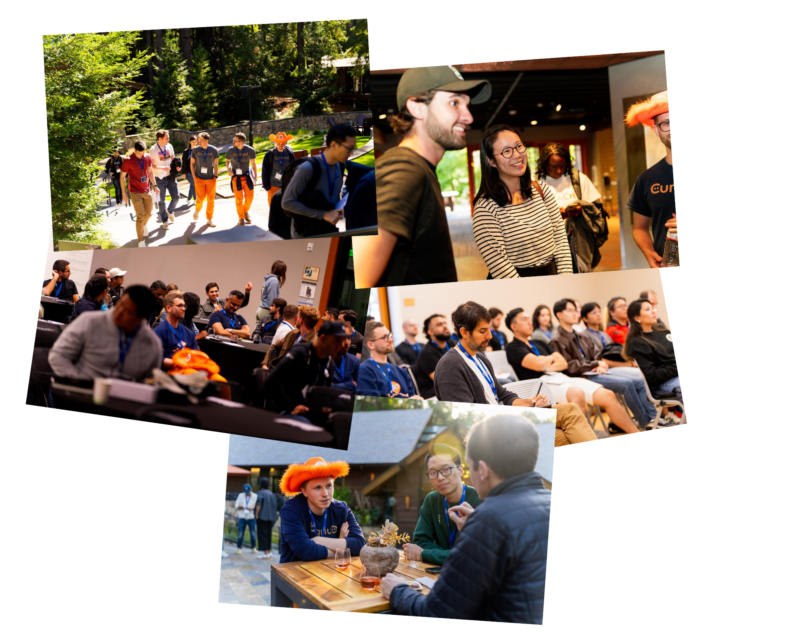
Scenes from Founders’ Day 2024: Real conversations, engaged audiences, and the occasional coffee-fueled banter.
Innovating with Balance: Bridging New Ideas and Time-Tested Strategies
Founders move fast and break things, and the tension between pushing innovation and respecting established practices emerged as a central theme in our program. During our live recording of The Disagreement podcast, Mentava founder and CEO Niels Hoven championed AI’s potential to revolutionize learning opportunities for outlier students, while Benjamin Riley of Cognitive Resonance drew from decades of research to challenge assumptions about personalization that have yet to fulfill their promise. Despite their animated disagreements, both agreed on some things: it may be too early to fully understand AI’s educational capabilities, students naturally learn at different speeds, and while the education system needs improvement, any solutions must be implemented thoughtfully rather than in a rush. You can listen to the episode here.
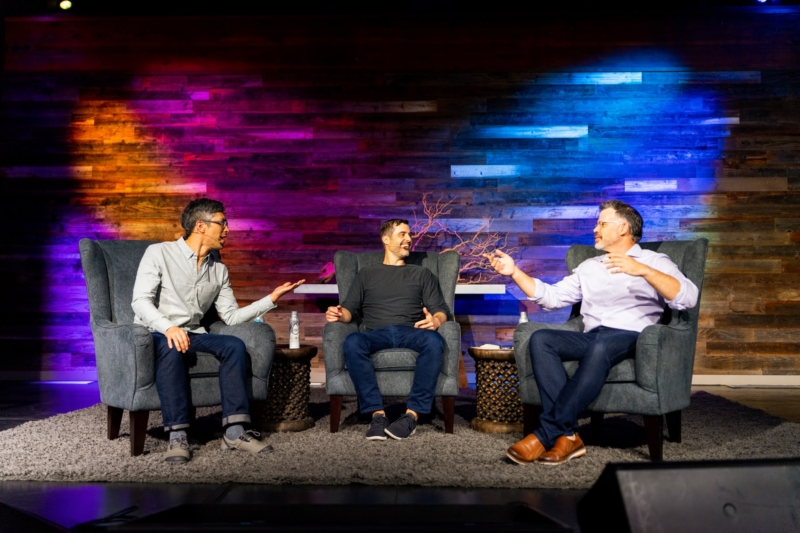
“AI in Education” with Niels Hoven (Mentava), Alex Grodd (The Disagreement), and Benjamin Riley (Cognitive Resonance).
This balance took on a different urgency at multiple breakouts with Future of Work advisors and K-12 founders as they shared the do’s and don’ts of pitching, piloting, and partnering with buyers. They highlighted the critical nature of understanding constraints amidst tight budgets and concerns about the rapid proliferation of AI. For startup founders, this discussion underscored that technological innovation must go hand in hand with a deep understanding of current realities in our institutional environments.
The need to bridge the gap between hype to reality also surfaced during our startup fundraising session. In the current post-ZIRP market environment, the emphasis has shifted from “growth at all costs” to sustainable unit economics, with profitability and revenue retention being two important indicators. Drawing from data from our portfolio and the macroeconomic environment, Reach’s Jennifer Carolan and Caoimhe MacRunnels showed how capital efficiency is now the cornerstone of top-tier valuations.
The Architecture of Story
The storyteller can be the most powerful person in the world. In his keynote, James Buckhouse, Design Partner at Sequoia Capital, unveiled the powerful role of narrative structures in evoking emotions. These time-tested patterns, employed from the days of Aristotle to Hollywood, are crucial in helping ideas flourish, inspire action and transform lives. Leveraging his decade-plus of creative experience at DreamWorks, Buckhouse demonstrated that storytelling transcends mere communication. He used DoorDash as an example: By viewing each user touchpoint as a character in an interconnected story — from the hungry family at home to the delivery driver navigating city streets — the company crafted experiences that resonated on a deeper, personal level. This cinematic lens revealed surprising insights: a family’s anticipation shapes the driver’s restaurant interaction; a restaurant’s brand lives on long after delivery through customer satisfaction. Through this storytelling framework, product design becomes less about features and more about orchestrating meaningful moments in each character’s journey.
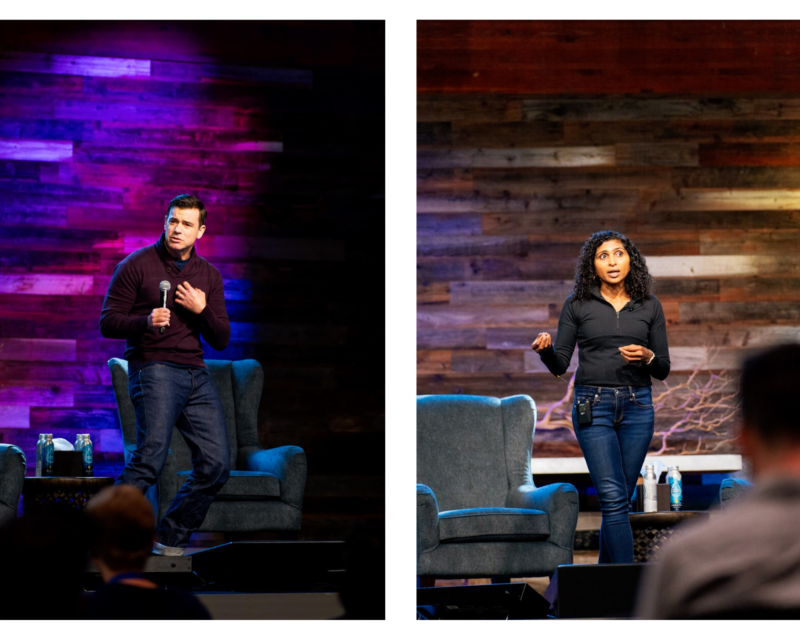
Sequoia Design Partner James Buckhouse (left) and Sarada Peri of Peri Communications (right)
Sarada Peri, founder of Peri Communications, tackled storytelling from a more pragmatic approach. The former Obama speechwriter explored common writing pitfalls that get in the way of clear, purposeful communication. The most striking was “the Christmas tree problem” – our tendency to overload the story by hanging every possible idea or detail on them, like ornaments. “A message about everything,” she warned, “is a message about nothing.” The antidote is ruthless focus: identify the single core message that only you, the founder, can uniquely deliver. This commitment to clarity extends to language itself — Peri urged leaders to avoid the unnecessary and stale jargon (i.e. “let’s double click on that”) that has infected corporate communication. You’re talking to people, so let’s talk like humans!
The Courage to Think Differently
Many founders chase incremental improvements. But true transformation requires the courage to question foundational assumptions, challenge the rules, and imagine entirely new possibilities. This was the message that Floodgate co-founding Partner Mike Maples Jr. delivered in his closing keynote: The greatest breakthroughs don’t come from being better; they come from being different.
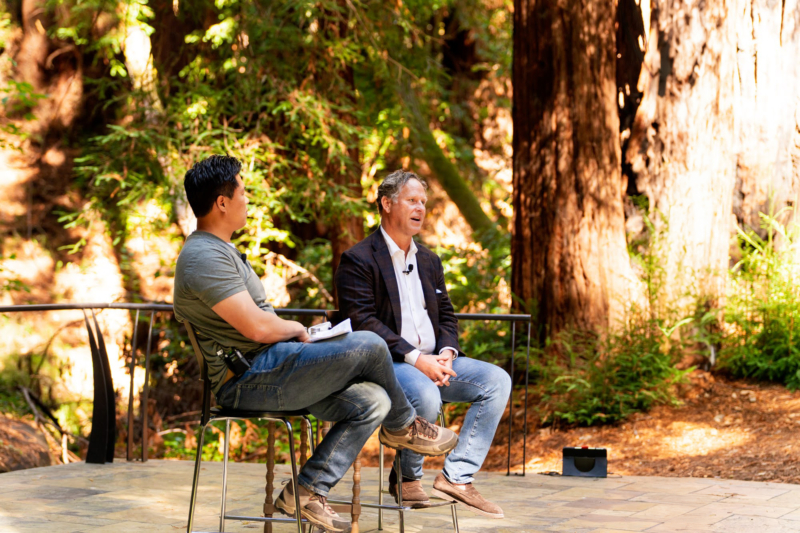
From left to right: James Kim, partner at Reach, and Mike Maples Jr., co-founding partner at Floodgate, on what it takes to be a Pattern Breaker.
Sharing themes from his recent book “Pattern Breakers,” Maples introduced us to what he calls “Thunder Lizards” – those rare, transformative companies that, like their namesake Godzilla, don’t just enter markets but fundamentally reshape them. These startups, he explained, share a common thread: founders who see invisible possibilities and pursue them with unwavering conviction. His contrarian insights have led him to spot some of tech’s most transformative companies early, including Twitter, Twitch, and Okta.
Looking Forward: Join Our Community
Some of our most meaningful connections happened in small founder circles tucked away under the redwoods. I watched as ClassDojo Founder and CEO Sam Chaudary opened up about the real challenges of hiring in today’s market, sharing hard-won lessons that sparked honest conversations about building teams that last. Eli Luberoff, Founder and CEO of Desmos, created a space to talk about something founders rarely discuss publicly — burnout — and how to stay resilient when things get tough. The Wayfinder team got us thinking deeply about purpose, exploring how to keep your mission alive and at center as your company grows. These intimate conversations reminded me why this community is so special: founders showing up for each other, sharing struggles and wisdom, knowing they’re not alone on this journey.
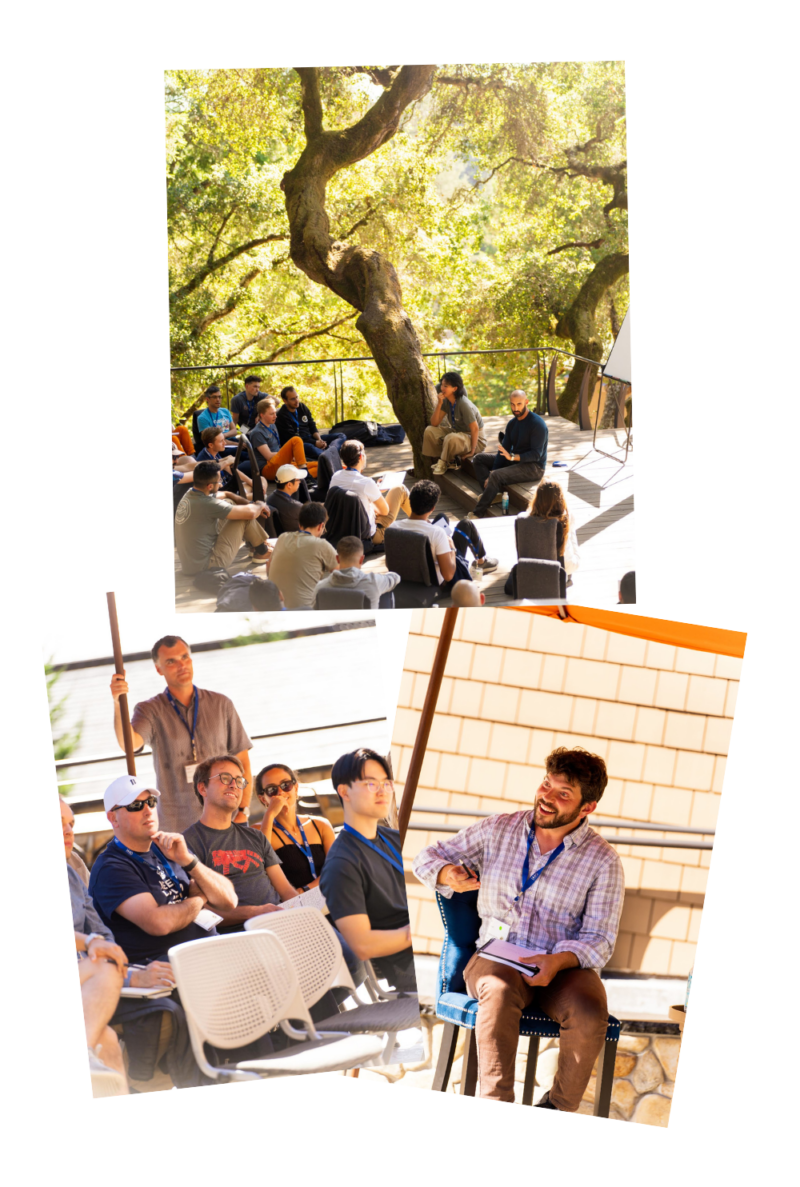
Portfolio founder breakouts with Sam Chaudhary, founder of ClassDojo, and Eli Luberoff, founder of Desmos.
As a newcomer to Reach, this event reaffirmed why I joined this community. These founders aren’t just building companies — they’re reshaping industries, revolutionizing how we learn, work, and thrive. They prove that the most significant growth happens in a community with deep roots and upward reach.
In celebration of our remarkable founders who breathed life into this vision, here are a few pages of the Founders’ Day Field Guide – a curated companion to commemorate this extraordinary gathering:
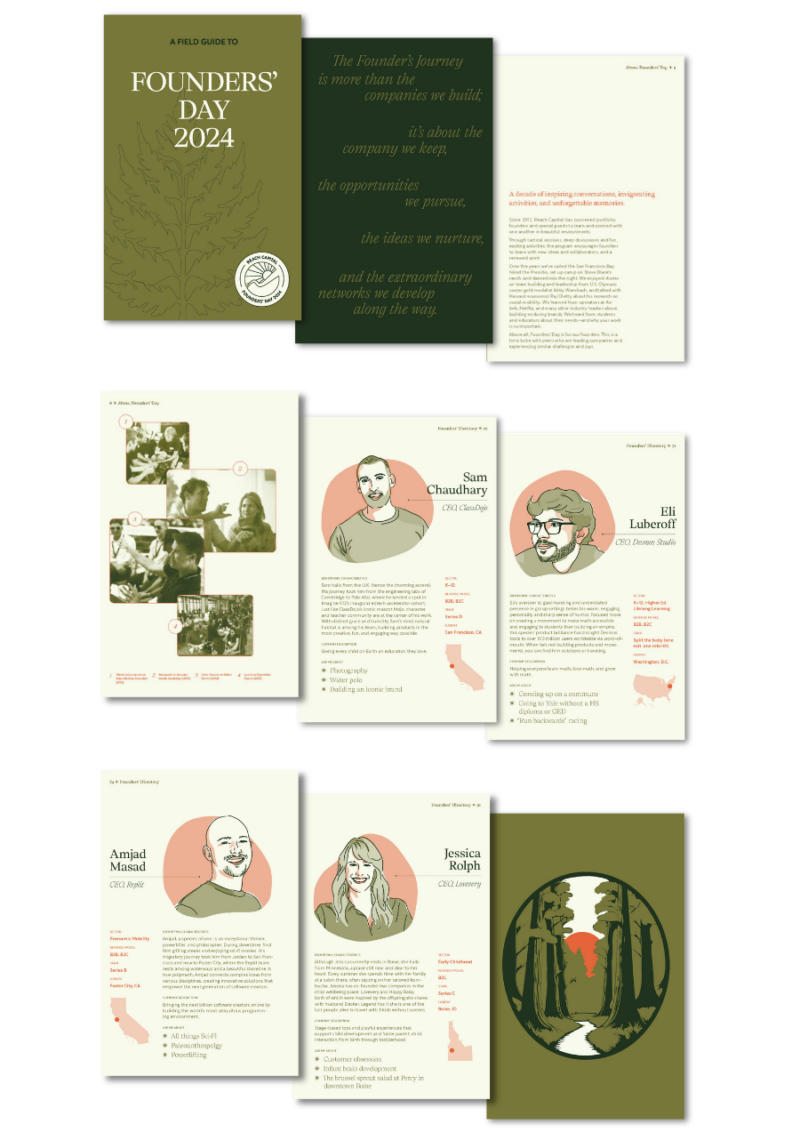
Designed by Yina Li.
From early literacy conversations with Lovevery, Curipod, and Paloma, to transformative workplace discussions with industry leaders, each conversation revolved around a shared commitment: to elevate human potential and ignite purpose across the fields of learning, health, and work. If you’re captivated by our community’s commitment to curiosity, contrarian thinking, and sustainable impact, we would love to connect.
Learn more and submit your pitch at reachcapital.com/apply

